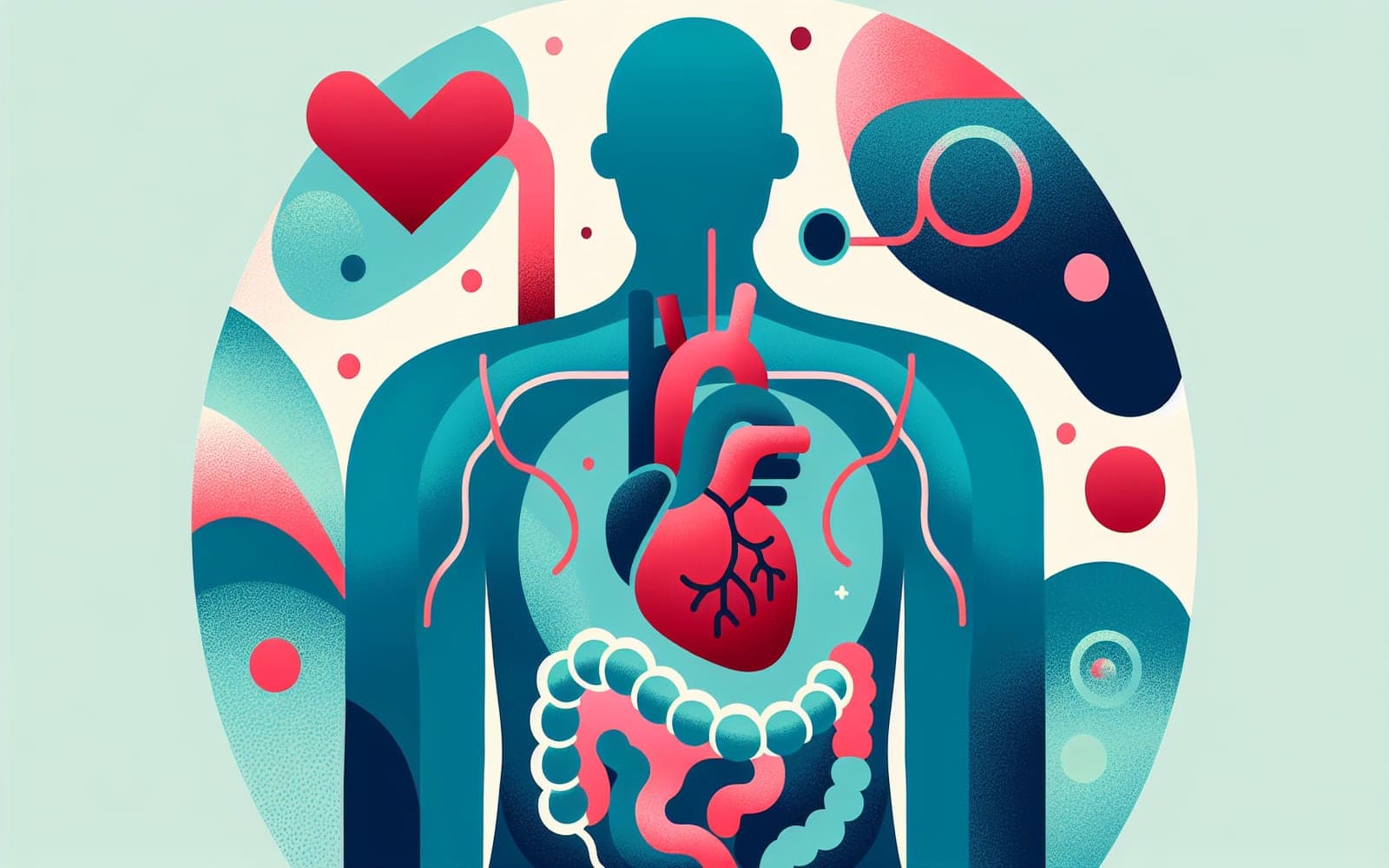The Gut-Heart Connection: How Your Intestines Might Be Putting Your Heart at Risk
Published: Jun 10, 2024
Did you know that your gut health could be affecting your heart? Recent research has uncovered a surprising connection between intestinal bacteria and cardiovascular risk. This link could revolutionize how we think about heart disease prevention.
Contents
Meet TMAO: The Gut-Derived Heart Threat
At the center of this gut-heart connection is a compound called trimethylamine-N-oxide (TMAO). TMAO is produced when gut bacteria break down certain nutrients found in red meat and other animal products. Think of it as a potentially harmful byproduct of your gut's food processing plant.
How TMAO Affects Your Heart
High levels of TMAO in your blood have been linked to an increased risk of heart attack, stroke, and death from heart-related causes. In one study, people with the highest TMAO levels had a nearly two times higher risk of major cardiovascular events compared to those with the lowest levels. It's as if TMAO acts like a corrosive agent, slowly damaging your cardiovascular system.

The TMAO-Plaque Connection
Research suggests that TMAO contributes to the development of atherosclerotic plaques - the fatty deposits that clog arteries. TMAO appears to interact with immune cells in artery walls, promoting inflammation and plaque formation. It's like TMAO is helping to lay down the bricks that build artery-clogging plaques.
Can We Control TMAO?
The good news is that TMAO levels can be influenced by diet and possibly by altering gut bacteria. Studies have shown that TMAO levels drop when people take antibiotics that suppress gut bacteria, and then rise again when the antibiotics are stopped. This suggests that changing your gut microbiome could potentially lower your TMAO levels and, by extension, your heart disease risk.
Frequently Asked Questions
Some, like red meat and egg yolks, are more likely to raise TMAO levels than others.
Some studies suggest certain probiotics might help, but more research is needed.
Yes, but it's not yet routinely used in clinical practice.
It's possible, as other factors like genetics also influence TMAO production.
TMAO levels can change relatively quickly in response to dietary changes.
A New Frontier in Heart Health
The gut-heart connection opens up exciting new possibilities for preventing and treating heart disease.
References
- Tang WH, et al. N Engl J Med 2013; 368:1575-1584.
- Wang Z, et al. Nature 2011; 472:57-63.
- Senthong V, et al. J Am Coll Cardiol 2016; 67:2620-2628.
This article has been reviewed for accuracy by one of the licensed medical doctors working for Doctronic. Always discuss health information with your healthcare provider.
AI Doctor Visit Required
Appointments available 24/7
15-min consultation. No hidden costs.
AI Doctor Visit Required
For safety reasons we have been forced to end this consultation.
If you believe this is a medical emergency please call 911 or your local emergency services immediately.
If you are experiencing emotional distress, please call the the Suicide & Crisis Lifeline at 988 or your local crisis services immediately.
Contact us
You can also email us at help@doctronic.ai
We aim to reply within 5-7 days
How likely are you to recommend Doctronic to friends or family?


